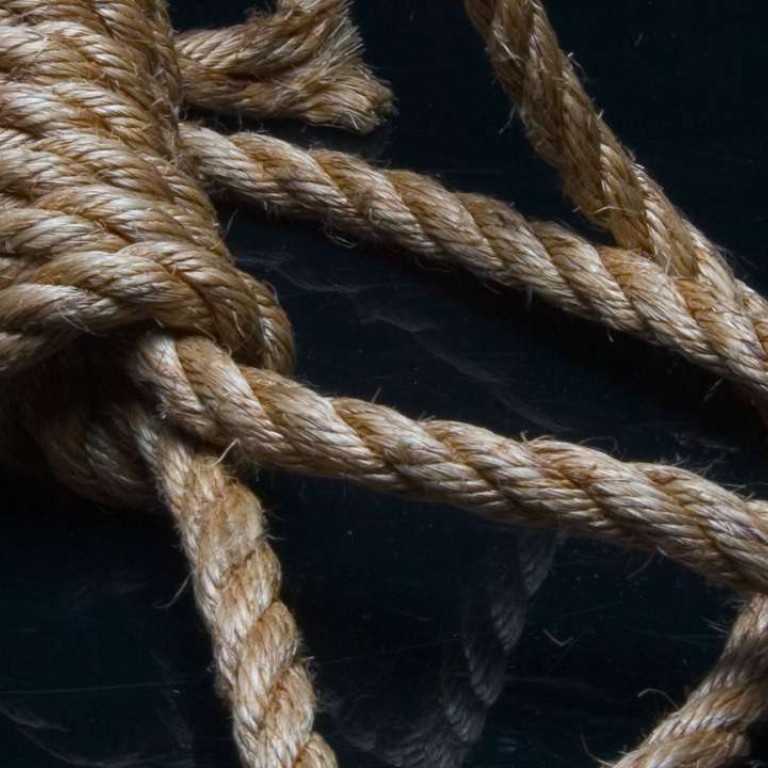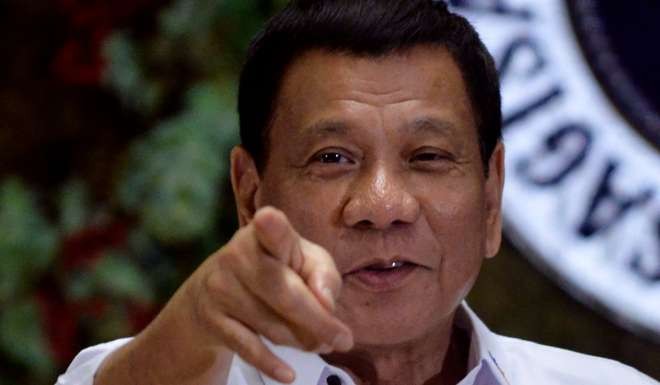
Duterte’s critics slam ‘barbaric’ death penalty plan to execute six criminals a day
Philippine Catholic leaders and rights groups have condemned as “barbaric” President Rodrigo Duterte’s plan to restore the death penalty and execute “five or six” criminals daily.
Duterte, 71, has made reviving the death penalty in the mainly Catholic nation his top legislative priority as part of a brutal war on crime that has killed 5,300 people.
“There was death penalty before but nothing happened. Return that to me and I would do it every day: five or six (criminals). That’s for real,” Duterte said Saturday.
An official at the influential Catholic Bishops’ Conference of the Philippines said the Church “totally opposed” Duterte’s plan.
“The Philippines will be viewed as very barbaric,” Father Jerome Secillano, executive secretary at its public affairs office, said.

“It’s going to make the Philippines the capital of death penalty in the world.”
The Philippines abolished the death penalty in 2006 following fierce opposition to the penalty from the Catholic Church, the religion of 80 per cent of Filipinos.
Before assuming office in June, Duterte vowed to introduce executions by hanging, saying he did not want to waste bullets and believed snapping the spinal cord was more humane than a firing squad.
Duterte said he viewed the death penalty not as a means to deter crime but for retribution.

His allies in the House of Representatives quickly pushed for the bill and said they would vote on it by January.
The United Nations’ human rights chief, Zeid Ra’ad Al Hussein, said in a letter to the Philippine congress this month that reviving the death penalty would violate the country’s international obligations.
But on Saturday Duterte insisted executions were necessary to fight the drug scourge which he said was “destroying” the nation.
While his aides dismiss his incendiary statements as hyperbole, rights advocates said Duterte’s remarks were alarming.

“Setting a quota for executions is just too much. One death is too much because we are talking about lives,” Amnesty International Philippines vice chairman Romeo Cabarde said.
Catholic leaders and rights defenders have instead urged the government to reform a slow and corrupt justice system which they said was likely to send innocent people to death row.
Secillano said bishops planned to dissuade lawmakers from voting for the death penalty and would attend congressional debates next month.
Duterte won May elections in a landslide on a promise to eradicate drugs in society - a mandate he often cited to defend his controversial campaign.
A survey by Social Weather Stations released Monday showed while a majority backed Duterte’s drug war, 78 per cent of Filipinos were worried that they or someone in their family would be a victim of extrajudicial killings.

The survey also showed 71 per cent said it was “very important” that police keep drug suspects they arrested alive.
Police have repeatedly said they only shot at criminals who fought back but the nation’s rights agency has questioned this argument and has begun investigating cases.
“Lord, I hope you forgive us even if the ones we kill are bad people,” Dela Rosa said during the police’s Christmas party.
“If the life of a policeman will be lost just to preserve the life of a criminal, that’s a great injustice.”
Dela Rosa added Duterte gave police hefty bonuses for leading the crime war.

.png?itok=arIb17P0)